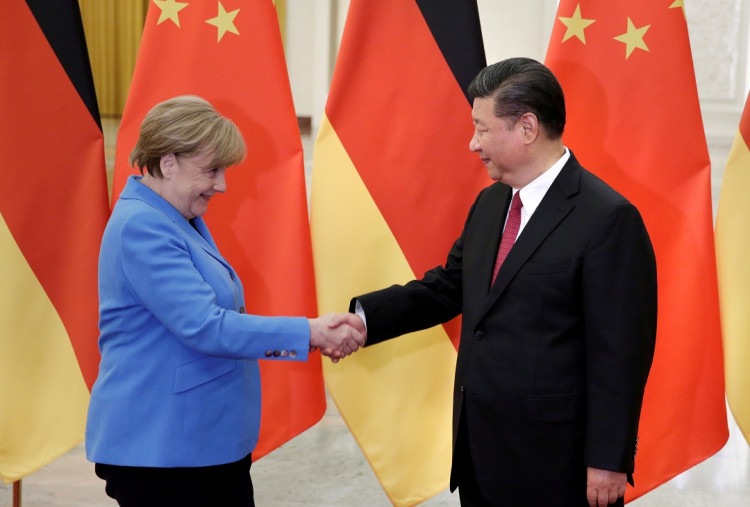China's Ministry of Finance made an announcement prior to Chancellor Angela Merkel's official visit to China this week, expressing the country's desire to form stronger ties with the European nation. The agency reiterated its stance in continuing efforts to strengthen China's economic and financial relationship with Germany.
The statement made on Wednesday came just days before Merkel's scheduled visit. The German Chancellor will be staying in China from September 6 to September 7 in response to an invitation by Premier Li Keqiang. China's Foreign Ministry originally announced the planned visit on September 2.
According to the statement, the building of a strong economic bond between both nations is vital given the international situation, which is described to be "complicated and changeable." The uncertain factors, including the ongoing trade frictions, may serve as a background that will push both nations to hold high-level talks to promote coordination and cooperation between two of the world's largest economies.
China is likely hoping to build on its already set partnerships with Germany, by establishing new cooperation agreements. In 2014, Merkel had a face-to-face meeting with Chinese President Xi Jinping, which resulted in the establishment of new comprehensive partnership agreements.
The agreements included the setting up of a financial dialogue mechanism that would allow for closer communications between both nations.
The 2014 meeting was then followed by a series of meetings by officials from both sides. In January this year, Germany's Vice-Chancellor and Minister of Finance Olaf Scholz had a sit down meeting with Chinese Vice-Premier Liu He in Beijing.
The various meeting had drastically bolstered the cooperation between both nations in various aspects, including macroeconomic policies, fiscal policies, financial regulations, and strategic cooperation.
Since 2014, both nations have developed partnerships in various national and private projects, including close communications regarding China's ambitious Belt and Road Initiative (BRI). Germany's Deutsche Bank and China's Export-Import Bank of China have since formed agreements to jointly provide support and services to projects related to the BRI.
Both nations have also established partnerships in financing small-and-medium-sized enterprises (SMEs). This was done through the establishment of a cooperation agreement under the framework of the Asian Infrastructure Investment Bank (AIIB) along with the exploration of using third-party market cooperation.
In July, China announced that it will be issuing a number of new measures to expand the opening of its financial sector to foreign countries such as Germany. One of the measures is meant to allow German banks to obtain so-called A-Class and B-Class licenses of lead underwriter.






